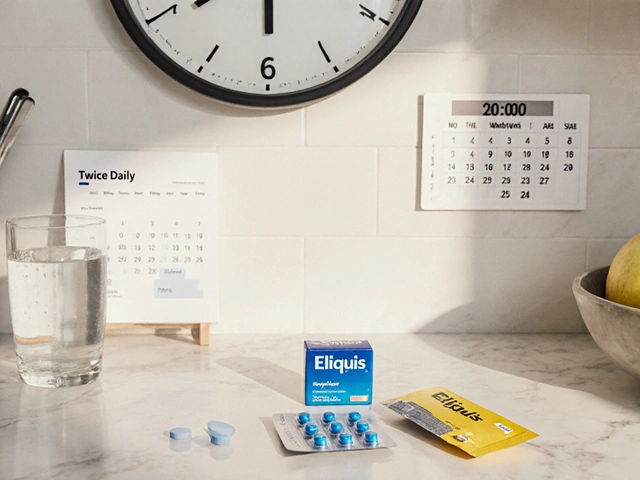Alternatives to Cefdinir – What Works and When
If your doctor prescribed Cefdinir and you’re worried about side effects, cost, or a possible allergy, you’re not alone. Many patients need a backup plan because Cefdinir can cause stomach upset, rash, or simply isn’t covered by their insurance. Below we break down the most common substitutes you can discuss with your clinician.
Common Cefdinir Alternatives
Amoxicillin is often the first go‑to. It’s cheap, works well for middle‑ear infections, strep throat, and some sinus infections. Most people tolerate it better than Cefdinir, but it can still cause mild diarrhea.
Cefuroxime (Ceftin) stays in the same drug family but has a broader spectrum. It’s a good pick for lung infections or urinary‑tract bugs that don’t respond to amoxicillin. Some patients report fewer gastrointestinal issues compared with Cefdinir.
Azithromycin (Z‑Pack) is a favorite for people who need a short‑course pill and have trouble with stomach upset. It’s especially useful for atypical pneumonia and certain sexually transmitted infections. Watch out for heart rhythm warnings if you have a pre‑existing condition.
Doxycycline works well for acne, Lyme disease, and some respiratory infections. It’s taken with plenty of water and should not be taken right before lying down to avoid throat irritation. Sun sensitivity is a common side effect.
Clarithromycin is another macrolide similar to azithromycin but taken twice a day. It’s effective for certain ear infections and Helicobacter pylori eradication. It can interact with many other drugs, so a medication review is a must.
How to Choose the Right One
The best substitute depends on the infection type, your medical history, and the bacteria’s likely resistance pattern. For simple throat or ear infections, amoxicillin is usually enough. If you’ve had recent antibiotic use or a known resistant bug, cefuroxime or a macrolide might be smarter.
Allergies matter, too. If you’re allergic to penicillins, avoid amoxicillin and consider doxycycline or a newer cephalosporin like cefuroxime—though cross‑reactivity can happen. Always tell your doctor about any past drug reactions.
Cost and insurance coverage often guide the decision. Amoxicillin and doxycycline are typically the cheapest, while azithromycin and cefuroxime can be pricier. Ask your pharmacist to compare prices or look for legitimate online pharmacies that offer discounts.
When you’re shopping online, use trusted sites that require a prescription and show clear pharmacist credentials. Medipond.com can help you compare safe options, read real‑user reviews, and spot red flags like unusually low prices or no prescription requirement.
Before you start any antibiotic, keep a short checklist: confirm the diagnosis, note any allergies, review current meds for interactions, ask about side‑effects you might expect, and verify the pharmacy’s legitimacy. Following these steps helps you get the right drug without unnecessary hassle.
In short, you have several solid alternatives to Cefdinir—amoxicillin, cefuroxime, azithromycin, doxycycline, and clarithromycin. Talk with your healthcare provider about which one fits your infection and health profile best, and make sure you order from a reputable source. Staying informed means you’ll heal faster and avoid unwanted surprises.










